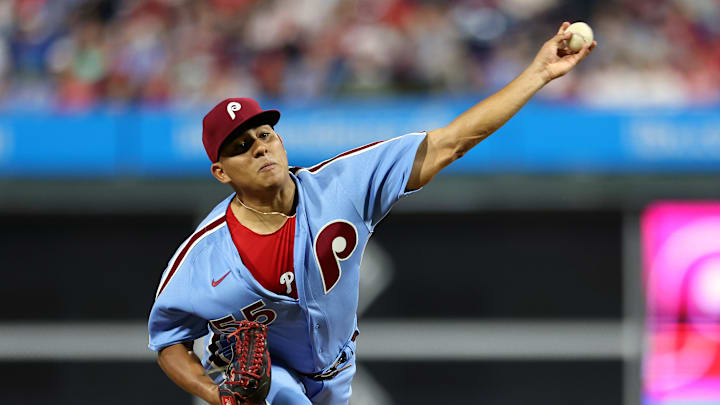After Gregory Soto grooved a 100 mph fastball past Jazz Chisholm Jr. to put the final touches on a dominant Wild Card Series against the Miami Marlins, all the attention turned to Atlanta, where the Braves await the Phillies in the NLDS. In what many consider the most anticipated Division Series this year, the Phillies vs Braves is riddled with storylines.
It’s a rematch of last year’s NLDS, where the underdog Phillies got the best of the big bad Braves in a series that most thought the Braves would run away with. The Phillies won last year with some timely hitting, timely defense and a lot of stellar pitching.
While this year's version of both teams is centered around vaunted offenses, similar to last year, this series will likely come down to starting pitching. Will the Phillies be able to keep presumptive MVP Ronald Acuña Jr., home run and RBI leader Matt Olson and the many role players like Albies, Riley and Harris II at bay?
Vice versa, can Braves pitching keep Kyle Schwarber from crushing momentum-turning homers, Trea Turner from wreaking havoc on the base paths and Bryce Harper from coming up with clutch, back-breaking hits?
Because the Phillies had to play two more games than the Braves, Wheeler or Nola will not be ready for Game 1 in Atlanta. Although not officially announced yet, Ranger Suárez will likely be on the bump for the Phillies.
The starting pitching led by each team's top-end one and two starters, along with the depth that their third and even fourth pitchers provide, will be the deciding factor in who moves on to the NLCS.
NEXT: How the Braves’ rotation is set up today and the most recent updates on key members of their starting staff.
